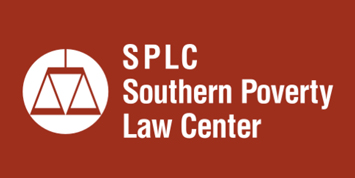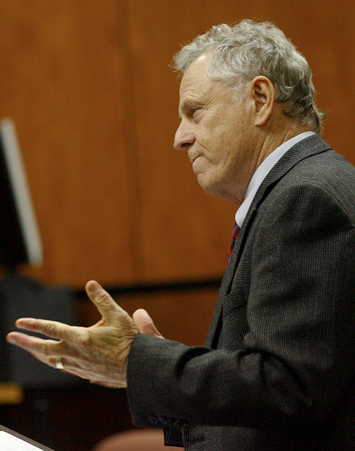Founded as a civil rights group in 1971 and gaining notoriety for campaigns to challenge the Ku Klux Klan, the Southern Poverty Law Center (SPLC) then shifted its focus, according to the New York Post, “to a catch-all ‘anti-hate’ group that widened its definition of bigotry to encompass more and more people as the Klan faded as a threat.”

COMMENTARY
According to the Post, “clear-eyed, fair-minded people on the left have long recognized the SPLC as a fundraising tool masquerading as a civil rights group, but its absurd overreach” and its misleading findings can still be seen in the mainstream press, including “highly regarded” media organizations like The Atlantic and PBS.
And, a growing number of critics say SPLC “picks its causes with its bottom line in mind.”
Case in point: In 1980 the group’s entire legal staff resigned to protest SPLC founder Morris Dees’ obsession with going after and exaggerating the threat the KKK, which Politico observed “still captured the imagination of the group’s liberal donor base—at the expense of lower-profile but more relevant targets.”
The SPLC’s recent internal problems, including the firing of founder Dees and the subsequent resignation of President Richard Cohen, accusations of sexual abuse of employees, racism and internal conflicts with employees—highlight a truth that’s been plain for years. It’s time to stop treating the group with credibility it no longer has nor deserves.
SPLC leadership is almost totally White, even though Julian Bond, former chair of the NAACP has been touted as a founding member. He was actually brought in by Mr. Dees to give the group credibility.
According to a March article in the Los Angeles Times, SPLC woes boiled over “after one of the center’s black attorneys announced her resignation earlier this month—writing in a message to staff that there was ‘more work to do’ to make women and people of color feel welcome—a group of staffers shared additional concerns with management in a letter.”
The letter signed by at least two dozen employees was sent to management before news of the Dees firing broke. It said employees were concerned internal “allegations of mistreatment, sexual harassment, gender discrimination, and racism threaten the moral authority of this organization and our integrity along with it.”
Employees expressed concerns about the resignation of “a highly respected black attorney” and criticized SPLC’s culture.
News reports dating back several decades have dissected the SPLC with some calling its designation as America’s number one “watchdog” organization highly overrated. The group’s focus, according to some former employees, is tainting organizations and individuals to appeal to potential donors. And, some charge, its “hate group” findings are suspect.
SPLC was sued and agreed to pay $3.375 million and issue a public apology for falsely including Maajid Nawaz in its “Field Guide to Anti-Muslim Extremists.”
Nawaz, himself a Muslim, was labeled by the SPLC as anti-Muslim. In a public apology, SPLC wrote: “We would like to extend our sincerest apologies to Mr. Nawaz … and our readers for the error.”
Error? The apology sounded like the problem was just a typo, instead of the deliberate sliming of his name by including him in a research report meant to put a permanent blot on his reputation.
According to the Washington Post, “Unfortunately, the settlement that the SPLC reached with Nawaz is not likely to deter it from smearing others—(nearly) $3.4 million is a drop in the bucket for the center, which raised $132 million between November 2016 and October 2017 and has a $477 million endowment, including a reported $92 million in offshore accounts.”

With such a tainted track record, clearly more interested in its bottom line than championing the poor and oppressed, one wonders why does the mainstream press continue to use the SPLC findings as gospel?
According to William Jacobson, a law professor at Cornell University and SPLC critic speaking to Politico magazine, “Time and again, I see the SPLC using the reputation it gained decades ago fighting the Klan as a tool to bludgeon mainstream politically conservative opponents.”
“For groups that do not threaten violence, the use of SPLC ‘hate group’ or ‘extremist’ designations frequently are exploited as an excuse to silence speech and speakers,” Jacobson added. “It taints not only the group or person, but others who associate with them.”
In the same article, Ken Silverstein, a liberal journalist who in the past took SPLC to task in a Harper’s magazine piece, “attributes the growing scope of the SPLC’s censures to a financial imperative to wade into hot-button issues that will rile donors.
“The organization has always tried to find ways to milk money out of the public by finding whatever threat they can most credibly promote,” he told Politico.
Prime targets of SPLC’s illicit practices are Minister Louis Farrakhan and the Nation of Islam.
During a press conference in Milwaukee, Nation of Islam Student Minister William Muhammad, the state of Wisconsin representative for the Muslim movement, called the SPLC out for its “slanderous attack” against the local Nation of Islam mosque.
“The slanderous attack on Muhammad Mosque No. 3 as a hate group, stemmed from a video of the mosque being caught on camera by a local news station. CBS 58 in Milwaukee used data from the Southern Poverty Law Center (SPLC) to include the mosque in Wisconsin as one of the fifteen ‘active’ hate groups in the state. Over two decades ago, the Milwaukee Journal-Sentinel, also named the mosque as a hate group. Both assertions came on the heels of two spiritual messages by the Honorable Minister Louis Farrakhan. The former being after the very successful Saviours’ Day address in Chicago (in February) and the latter being after the Minister spoke in downtown Milwaukee in 1997.”
“The allegations of hatred among the registered members of the Nation of Islam in Wisconsin were defamatory and unjustified,” Muhammad continued. “The airing of the so-called findings of the SPLC put the mosque, innocent Believers, family, children and guests falsely as the face of hatred.”
This article was revised on April 4, 2019.













